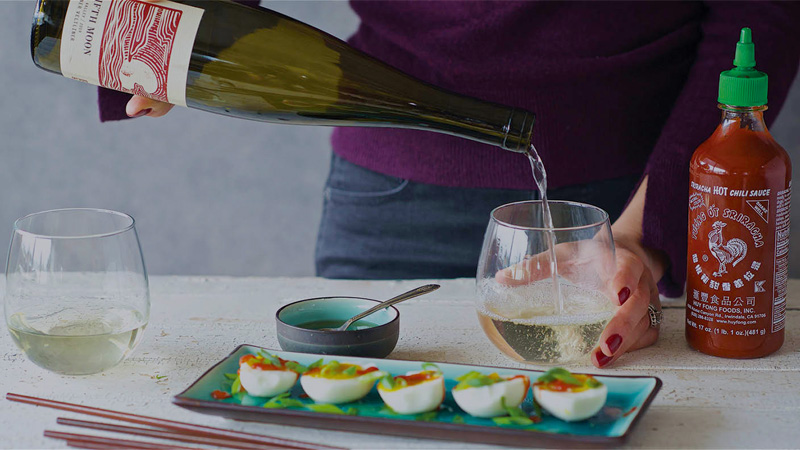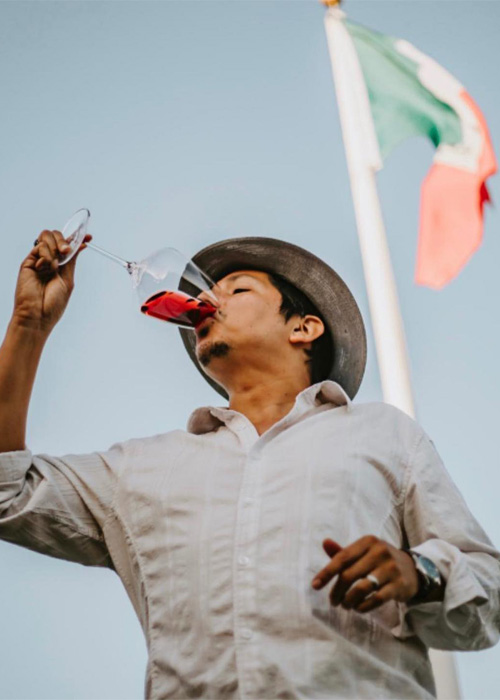I came to Napa in 2010, and I already knew I didn’t fit in. I was young, mixed-race, and a woman. Now, 12 years later, I’m the CEO of RD Winery, Napa’s first Vietnamese-owned winery. Although I hold a position of authority, I sometimes feel I’m even more of an outsider now than when I first arrived.
On the outside looking in
I’ve never been disillusioned that the title of CEO would instantly open the gates of respect and recognition from others in the wine world. What I didn’t expect is the frequency in which I would be invisible. In a meeting just three years ago, I was with a sales rep and a white, male member of my staff. Throughout the hour, every answer to the questions I asked was directed to my employee, as if I wasn’t the one asking. As if I wasn’t standing in the same room. As if I wasn’t in charge.
The intersectionality of my BIPOC and female identities often means I’m the only one in the room who looks like me. I work in a sea of whiteness and maleness. I know I’m not the only one who feels this way, and I’m thankful to have people like Gabriela Fernandez — trade and marketing events supervisor for the Duckhorn Portfolio and creator of “The Big Sip” podcast — to remind me that while I may be on the outside, there are others standing there with me who are already making changes.
Fernandez’s podcast highlights Black and brown people in the wine, culinary, and arts industries. “Showing up in these spaces looking like I do, you have to be twice as educated and prepared,” she says. “People don’t expect to see me in this position, so I have to prove that I belong here; that I know what I’m doing.”
My mistakes have greater gravity, as people often ascribe my faults to shortcomings of being a woman or being Vietnamese. This is the burden the outsider bears when they find themselves in traditionally white spaces like the wine industry.
But I’m privileged to have a seat at the table and even more privileged to have the opportunity to build a table of my own.

Our dinner tables all look different
I’ve heard great stories from people who grew up in the Napa Valley with memories from elementary school of crushing grapes and making wine. Exposure, access, and love for the wine industry begins at a very young age here.
But I’m not from Napa Valley. My parents aren’t wine industry folks; they didn’t take vacations to Napa or have a wine cellar in our basement in New York. I wasn’t raised in a family that drank wine with dinner, and our staple carbohydrate was white rice. I didn’t know UC Davis was the school to attend to get ahead in the wine industry, and the idea of a career in wine was never on my radar. Sometimes, things just happen.
Maybe that’s the point: Our culture, our heritage, and the places we come from shouldn’t determine where we land or what we’re able to be a part of. The truth is, there is no wine gene. Anyone could be part of this terroir-filled world, whether it’s having access to becoming a winemaker, feeling welcome in tasting rooms, or seeing themselves represented in the wines being made.
Wine marketing is often focused on a limited, Eurocentric view of wine and food pairings with winemaking styles that exclusively support these efforts — which excludes much of the world. “We need to think about who we’re making wine for,” says Fernandez. “Hispanic palates are geared more toward sweet, for example. So, it’s about creating wines that speak to existing palates and building on those, rather than making them feel like the product isn’t for them at all.”
Once you peel back all the layers of pretense and illusions of exclusivity, wine is just fermented grape juice that, depending on its style, can pair with most meals, including many of the Vietnamese dishes I grew up with.
Bringing in the outsiders
I know what it feels like to go into a tasting room wearing my nicer clothing as armor and feeling unsure how to speak about wine. I know the pressure to buy a bottle after a tasting to prove I can afford it, even though I’m not the baby boomer guest they were hoping to serve. I know what it feels like to fumble with wine etiquette — the swirling, the inhaling deeply, the waiting to experience the tasting notes that were shared — only to be disappointed when my untrained palate and nose failed to key in on those descriptors.
I know what it feels like to want to enjoy the wine, because I’m supposed to, because it scored highly, even when I know it’s not the right wine for me because I didn’t love how it tasted. This is why I’ve wondered, do I not belong in this world? Is wine just not for me?
When I realized that all of these experiences weren’t really a “me” problem, but instead a larger issue in the wine industry that others have unfortunately shared, I knew I could take these lessons and apply my learnings. I could welcome people into this world.
I set out to make RD Winery authentic to our identity as the first Vietnamese-owned winery in Napa, with the Vietnamese tradition of community at its core. The tasting room experience wouldn’t focus on Eurocentric food or culture, or be so costly that only the elite could afford to visit. We would disrupt the status quo. We would create an environment that fostered community — not just of tourists but of locals, too.
Our team would speak in a language that didn’t feel unreachable. We would make wines that could pair with a variety of cuisines. We would showcase and share food pairings that not only invited in those who have felt excluded from the world of wine, but perhaps even expand others’ notions of pairing possibilities as well.
At RD Winery, we welcome people to join us as they are: no dress code, no wine knowledge necessary, no judgment. It’s a place where a young, mixed-race woman can feel less like an outsider, and everyone, outsider or not, can feel like they belong, too.

The future of wine
There are, of course, others who are on this journey to change the industry into what we all know it can someday be. Martin Reyes, the world’s only Master of Wine of Mexican descent, has worked in Napa for more than 20 years. Reyes and I look forward to the day when the wine industry will be welcoming to all. “Not just for people of color, but also in terms of ableism, ageism, gender — anything that is classically viewed as ‘otherness.’”
We want to see others like us, and we want to be seen, no matter where we are in this industry — in the executive suite as managers, as winemakers in the cellar, vineyard, and tasting room, and as consumers. Because representation matters. But sometimes, to fit in or to find a place where we belong, we have to build it ourselves. And when we do finally get our seat at the table, we have to bring more outsiders in in an effort to dismantle the very notion of the insider.
I’ve been given a rare opportunity to have an impact on the wine industry — to make it more open to change, more inclusive, and maybe a little more like me: mixed.
This story is a part of VP Pro, our free platform and newsletter for drinks industry professionals, covering wine, beer, liquor, and beyond. Sign up for VP Pro now!
